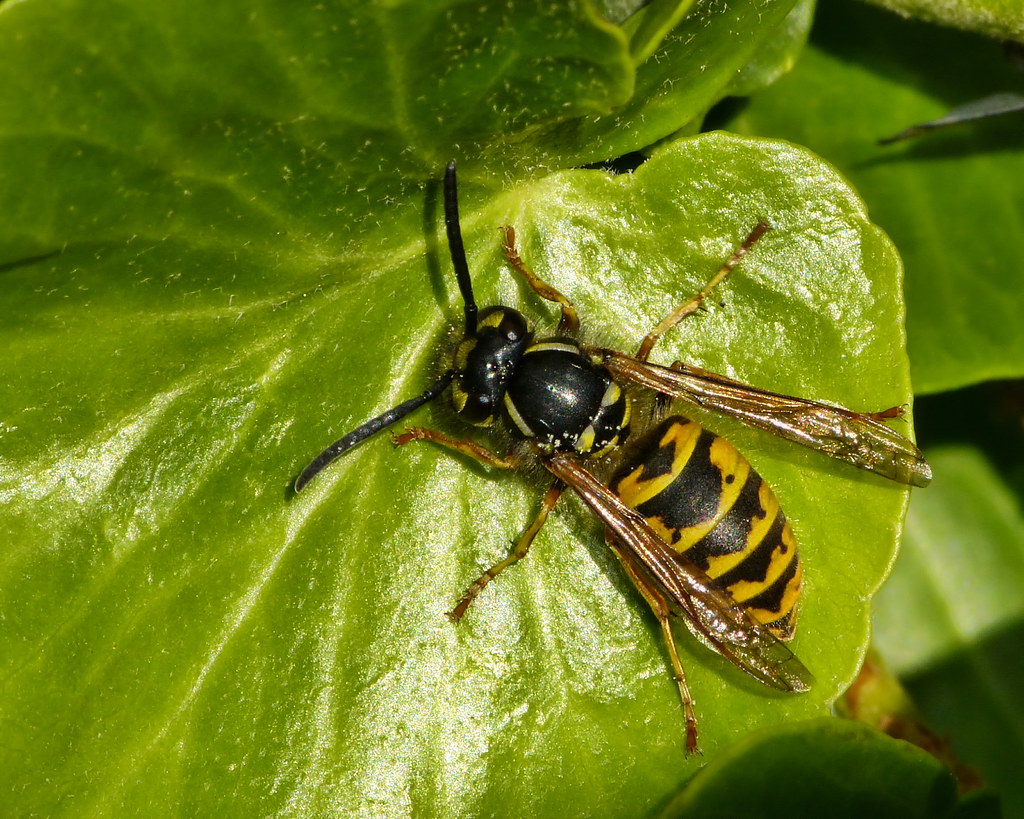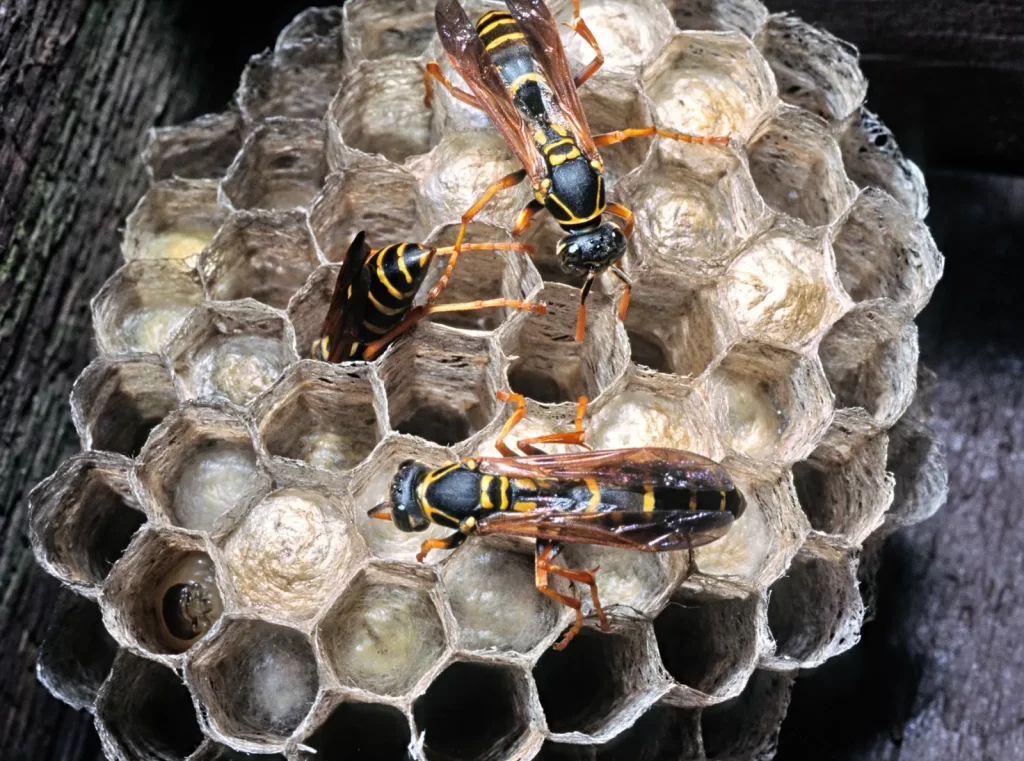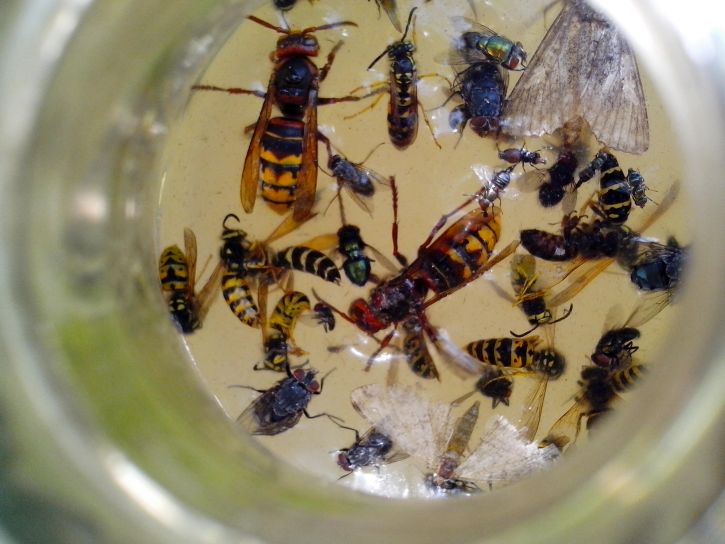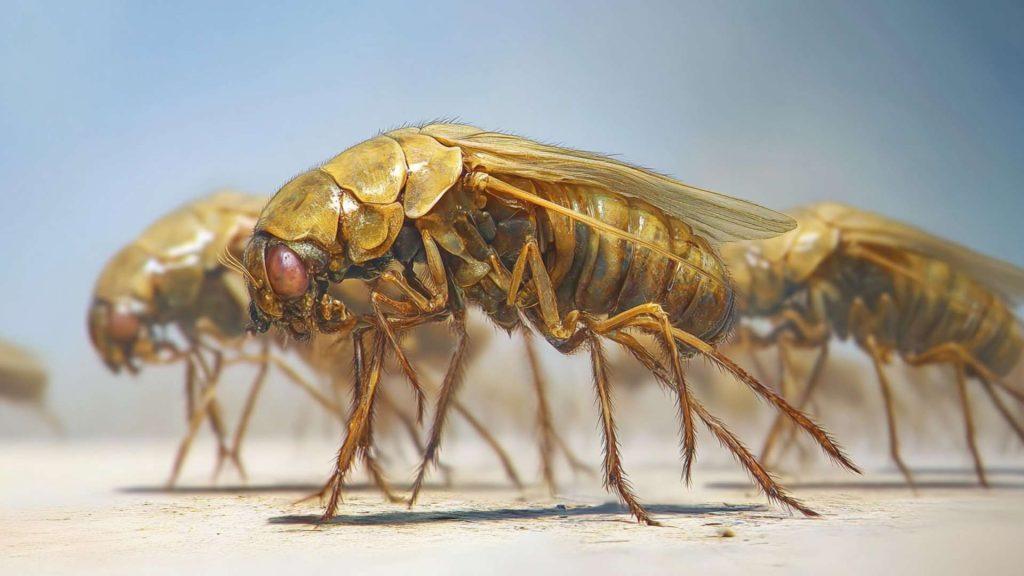Wasps can be a serious nuisance, especially during the warmer months. Not only do they create discomfort around homes and gardens, but their stings can also cause allergic reactions in some people. Preventing a wasp nest from forming near your property is the best way to avoid these problems altogether. This guide will explore simple yet effective strategies to stop wasps from building nests in and around your home.
Key Takeaways:
- Early prevention is the key to avoiding wasp nests.
- Identifying potential nesting spots and sealing them up can significantly reduce the chance of wasps settling.
- Regular inspections and natural deterrents help keep wasps at bay.

Understanding Wasp Behavior
Before diving into prevention strategies, it’s essential to understand why wasps build nests and what attracts them to specific areas. Wasps typically look for sheltered spots, like eaves, attics, or overhangs, where they can construct a protected nest. They are drawn to areas that provide easy access to food and water, making homes with open garbage bins, exposed food, or bird feeders particularly attractive. Wasps are most active in the warmer months, so early spring is the ideal time to start prevention measures.
Inspect and Seal Potential Nesting Areas
One of the most effective ways to prevent wasps from building nests is to eliminate potential nesting sites. Regularly inspect your home and garden for areas that could provide shelter for a wasp nest. Look for:
- Eaves and overhangs
- Attic spaces and vents
- Decks and sheds
- Cracks in walls or foundations

Once you identify these spots, seal any gaps or openings that might allow wasps to enter. Use caulk to fill in cracks around windows, doors, and other entry points. Cover vents with mesh screens to block access to attics or crawl spaces. By removing these sheltered areas, you make your home a less appealing location for wasps to settle.
Maintain Cleanliness Around Your Property
Wasps are attracted to food sources, so keeping your surroundings clean is crucial. Ensure that your garbage bins have tight-fitting lids and avoid leaving food or sugary drinks outside for long periods. If you have outdoor picnics or barbecues, clean up immediately after eating to avoid attracting wasps. Additionally, keep pet food and bird feeders away from areas where people gather, as they can serve as food sources for wasps.
Use Natural Wasp Deterrents
If you prefer to avoid chemical solutions, natural wasp deterrents can help keep these pests away. Certain plants, oils, and other natural remedies can make your home less attractive to wasps:
- Peppermint oil: Wasps hate the strong scent of peppermint. Mix peppermint oil with water and spray it around potential nesting areas like eaves and windows.
- Citrus and clove: Placing citrus peels or cloves in high-traffic wasp areas can help repel them.
- Herbs like mint and thyme: Planting these herbs around your yard can also act as a natural deterrent, as wasps dislike their smell.
These natural solutions are not only safe but also eco-friendly and effective in preventing wasps from nesting.
Keep Outdoor Lighting Minimal
Wasps are attracted to light, especially in the evening. If possible, limit the amount of outdoor lighting you use at night. Consider switching to yellow-toned or sodium vapor lights, which are less attractive to insects, including wasps. Reducing their access to light sources can help decrease their presence near your home.
Regular Inspections and Maintenance
Perform regular inspections of your property to catch potential wasp nests early. Wasps start building their nests in early spring, so it’s essential to stay vigilant, especially during this period. Look for small nests, as they are easier to remove in the early stages. If you notice any nest activity, carefully remove the nest using proper protective gear or contact a professional exterminator for safe removal.
Additionally, trimming back trees, bushes, and other vegetation near your home can reduce the number of potential nesting spots, making your yard less attractive to wasps.

Chemical Wasp Repellents
If wasps continue to be a problem, consider using chemical repellents specifically designed to deter wasps. These can be sprayed around common nesting areas, such as under eaves, around window frames, and near outdoor dining spaces. Always follow the manufacturer’s instructions when using any chemical product to ensure your safety and the safety of those around you. Chemical repellents can provide a strong, long-lasting barrier that keeps wasps from building nests on your property.
Professional Wasp Control Services
In some cases, despite your best efforts, wasps may still try to establish nests around your home. If you find a large nest or are dealing with an aggressive wasp species, it’s best to seek help from a professional pest control service. Professionals have the experience and equipment necessary to safely remove wasp nests and provide long-term solutions to prevent them from returning.
Effective Wasp Nest Removal Strategies :
Check out these effective strategies to safely remove wasp nest and treat wasp infestation:
| Method |
Description |
When to Use |
Precautions |
| Professional Removal |
Hire an expert to remove the nest. |
Large nests or hard-to-reach areas. |
Ensure the professional is licensed. |
| Insecticide Spray |
Use wasp spray to kill wasps inside the nest. |
Small, accessible nests, low wasp activity. |
Wear protective gear, follow instructions. |
| Knock Down Nest |
Remove the nest after treatment. |
After killing wasps or during cooler months. |
Ensure wasps are dead; wear protection. |
| Soapy Water |
Spray soapy water to suffocate wasps. |
Small, reachable nests. |
Wear protection, have a quick escape route. |
| Vacuuming |
Use a vacuum to safely remove wasps. |
Ground nests or difficult areas. |
Use a vacuum with a long hose. |

 Once you identify these spots, seal any gaps or openings that might allow wasps to enter. Use caulk to fill in cracks around windows, doors, and other entry points. Cover vents with mesh screens to block access to attics or crawl spaces. By removing these sheltered areas, you make your home a less appealing location for wasps to settle.
Once you identify these spots, seal any gaps or openings that might allow wasps to enter. Use caulk to fill in cracks around windows, doors, and other entry points. Cover vents with mesh screens to block access to attics or crawl spaces. By removing these sheltered areas, you make your home a less appealing location for wasps to settle.


 Once you identify these spots, seal any gaps or openings that might allow wasps to enter. Use caulk to fill in cracks around windows, doors, and other entry points. Cover vents with mesh screens to block access to attics or crawl spaces. By removing these sheltered areas, you make your home a less appealing location for wasps to settle.
Once you identify these spots, seal any gaps or openings that might allow wasps to enter. Use caulk to fill in cracks around windows, doors, and other entry points. Cover vents with mesh screens to block access to attics or crawl spaces. By removing these sheltered areas, you make your home a less appealing location for wasps to settle.



